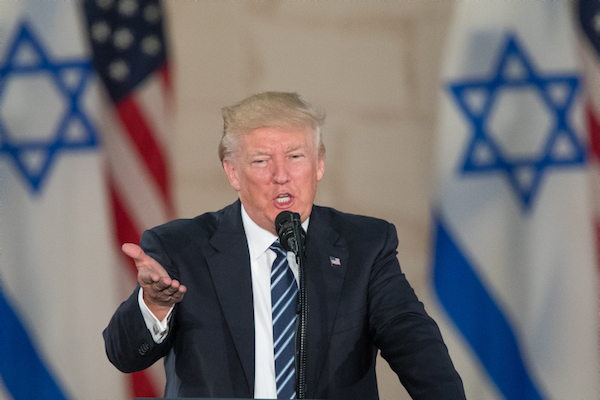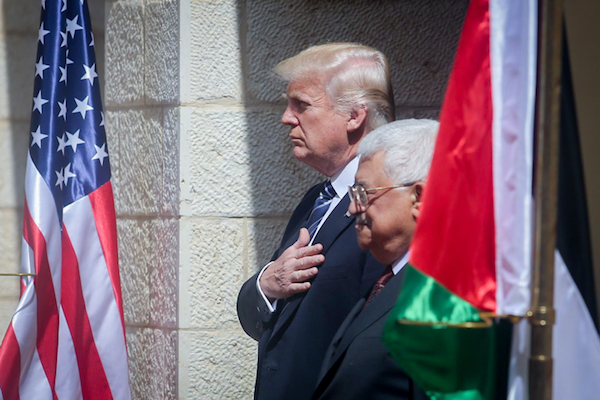When both sides aren’t ready to make concessions, when one side gets to decide who sits at the table and who sits in jail, negotiations are bound to fail. It is time for the international community to mediate.
By Mossi Raz

A man is standing in a dangerous place, beside him is a wall, and beyond that wall is a safe harbor. The man tries to cross over directly through the wall, time and time again, until he cracks his head. Nearby is a bus that brings its passengers to the other side, but our man won’t board that bus. He won’t let foreigners determine his fate.
This is precisely our story. Since 1967 we have been carrying out an occupation that brings with it killing and moral corruption. We know exactly where we want to get: a two-state solution, which was presented in the Arab Peace Initiative, and whose details were laid out in the Geneva Initiative. And yet we are unable to get there.
In general, it is doubtful whether the two sides can negotiate when one side is so much stronger than the other. One side gets to decide who gets to sit at the negotiating table, and who gets to eat chocolates in prison, who will be detained in a cage for hours because he wanted to pass through a checkpoint, and who will be treated as human.
The reason for the failure thus far has been the attempt to go head first into negotiations. But there is another possibility, one that President Trump spoke about during his meeting with Mahmoud Abbas. He said that he would be a mediator between the two sides. For 50 years we have been trying and insisting on making mediation a possibility, to little success. Now is the time for mediation.
In mediation, the prime minister will neither be made to give nor take. He will arrive in order to demand what he wants. He can claim that Hebron was always ours, that Dahiyat al-Barid is in our blood, that Jews have always longed for Ramallah. The prime minister can go into mediation with whatever he believes is in Israel’s best interest. The media, which once criticized prime ministers for what they “gave up” in negotiations with Palestinians, will only strengthen him. Finally, after a year, the mediator will decide. What will he decide? This we already know: something along the lines of the Geneva Initiative. Most Israelis and Palestinians, along with the governments of the world, will be able to live with this kind of arrangement.

Negotiations have another built-in problem: there will always be tomorrow, next week, after the next elections. The negotiator will always think that he can obtain more in the future. There is no clear deadline. This is the reason why, for instance, negotiations with striking workers end only after the strike is declared. We cannot allow ourselves to end negotiations with the Palestinians only after another war breaks out. In mediation everything will be clear: every side will have a limited time period to lay out its demands and claims before the mediators, after which a decision will be made. Not after the next war.
The idea of Trump as mediator is neither as revolutionary nor novel as he would like to think. In fact, this is how Israel and Egypt came to a last-minute peace deal. There were misunderstandings about the fate of Taba, after which both sides turned to international mediation, in which Egypt won out. Prime Minister Shamir knew from the onset that he would lose, yet preferred to lose in an international tribunal rather than to give up on Taba ahead of time. It could very well be that the same will happen with future prime ministers, who may prefer international rulings on the end of the occupation over making a personal decision to do so.
The State of Israel was not established as a result of negotiations. Had the British been forced to give and take with Prime Minister Ben Gurion, I doubt he would have allowed the establishment of a Hebrew state without Jerusalem, the Negev, the Galilee, Lod, Ramle, and Jaffa. The Arabs surely would not have agreed to it. But without international intervention, Israel would not have been established at all. Today we need a similar decision to save Israel from itself, and from the occupation.
Mossi Raz is the secretary-general of Meretz. This post was originally published in Hebrew on Local Call.
